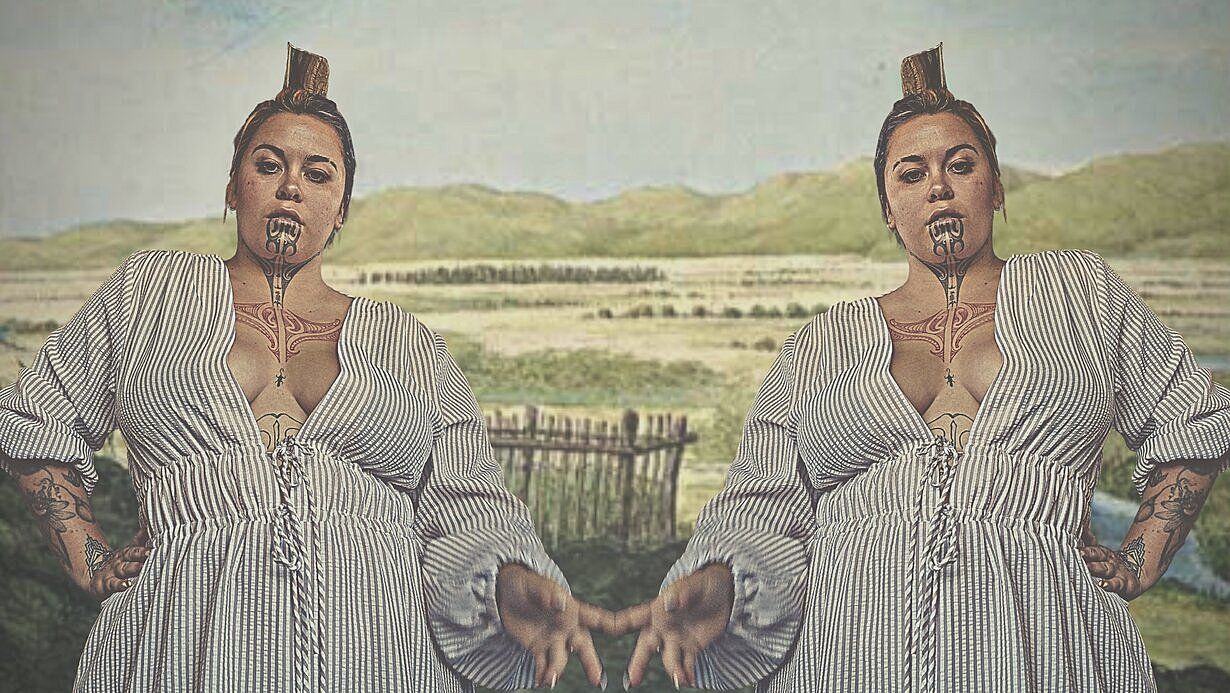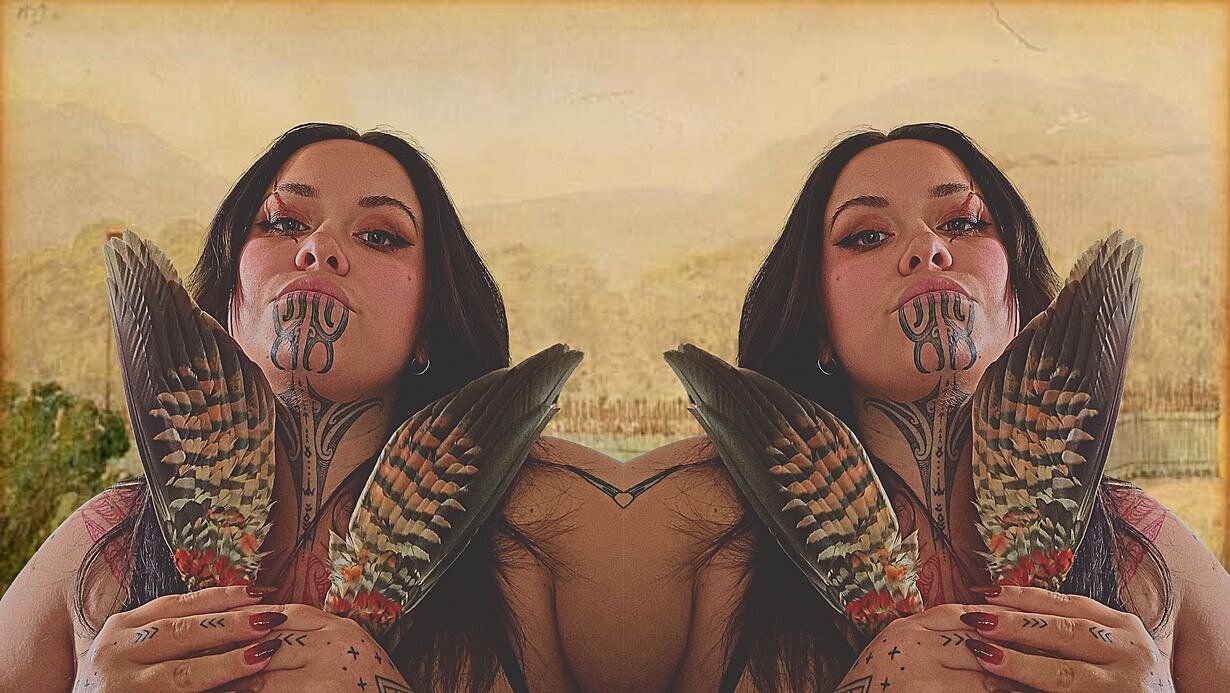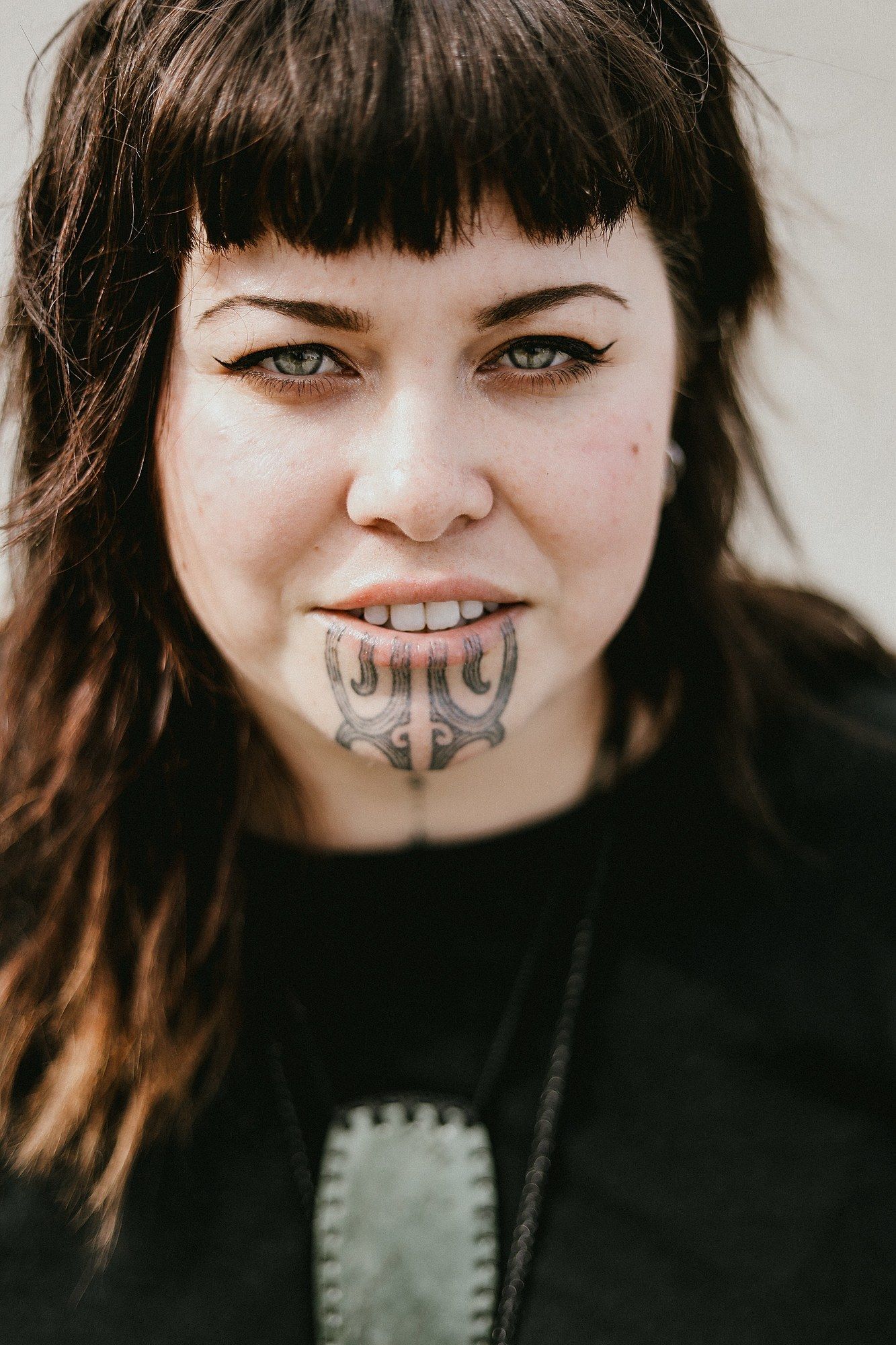Tikanga in War
Ana McAllister on the protocols she uses to protect her tinana and wairua in her activism mahi.
CW: trauma, white supremacy, colonisation, crisis, suicide
“And yes, I’m a do-er. It’s a coping strategy. Much of it stems from trauma. I thrive in crisis. I get shit done in crisis. Most of the Native women I know are like this. I’d like for us to thrive in peace someday.”
– Dr Desi Rodriguez-Lonebear, PhD
Like Dr Desi Rodriguez-Lonebear, I thrive in a crisis, which has meant I have now found myself in several crises simultaneously, while they all escalate around me. In the last five months, I have become a target for right-wing and white supremactist communities, so my crises have encroached on my physical, emotional and mental safety. Because of this intense targeting, I have become one in a long line of activists to haveactivist burnout.
Image credit: Ana McAllister
Activist burnoutis well known within marginalised communities. It’s defined by:
- exhaustion/feeling drained (this can be both physical and/or emotional)
- inefficacy, or doubting yourself and your achievements
- cynicism, or not seeing your mahi as ‘worth it’
Our very existence is political and radical, but when we are in the trenches dealing with colonialism in various forms, activists (especially those who belong to multiple marginalised groups, i.e., a queer, disabled, Māori woman) are highly susceptible to activist burnout. You don’t have to be dealing with the life-threatening, violent side of activism to have activist burnout. It can happen to anyone at any point. You can get activist burnout from just working in a culturally unsafe environment. You could even be like me and get activist burnout out of the blue after doing it for years.
Now I’m not trying to say that reading this will solve all your troubles, especially if you’re working in areas of systemic racism. But when I first started my more intense mahi, I found myself looking desperately for writing from other activists, something that would guide me through the battle I was facing. From that information and from my own experience come lessons that I want to share with you all.
“Caring for myself is not self-indulgence, it is self-preservation, and that is an act of political warfare.”
– Audre Lorde, A Burst of Light: And Other Essays
Support Structure
For those who work online (most of us these days), it can feel very isolating. And your view of the world can get distorted to the worst of the worst. I have read the security assessments of white supremacy in this country. I have seen the numbers, the names, the locations. Seeing these things, and being so ingrained within them, made me forget that most people in this country are actually not neo-N*zis. I had to be reminded of this fact by a friend who I confided in. Having people around you who can bring you back to reality, share the load, offer advice, or just listen to you are vital. It’s always great to have a more experienced activist you can call on in times of need, even if it’s just to tell you you’re being reckless. An isolated activist is a weak one.
Record Keeping
This one is a bit of a safety tip, but it is also good to figure out how you are doing emotionally and physically on a day-to-day basis. If applicable, please keep a record, with dates, of any potential threats you receive from those who disagree with your activism whakaaro. But also consider keeping a record of how you are doing. Now I hate diaries, but I love spreadsheets, so that’s what I use to record any trauma responses, good days, good moments. This takes the weight off remembering things and may even help you see a pattern emerging that you can use to your advantage, which leads me to my next tip.
We can’t be out here fighting colonisation 12 hours a day; trust me, I tried, and it didn’t work
Use Your Time Wisely
I know it’s a cliché, but this is a marathon, not a sprint. We can’t be out here fighting colonisation 12 hours a day; trust me, I tried, and it didn’t work. Schedule when to fight, which means you won’t feel as guilty when doing other things, because you know that from 4–7pm, you’re doing the mahi. If you need to, even schedule when you eat, see family and watch TV. This sets really clear boundaries for you to try to stick to. It does take practice, but at some point, you will get better at compartmentalising everything.
Rest
Use your time to REST. Please, rest. I’m typing this as the same person who literally pulled four months of 12–15 hour days while everyone told me to rest. So I know how hard it is, especially when you are in danger. But I learned not to look at rest as necessarily sleep, cause I was horrible at sleeping at the time, but just as brainless time. Which, for me, meant TV time. I would stop working about 9pm and watch trashy TV. My favourite was The Blacklist, which, at one point, I would joke was my only reason for wanting to live. Find what this mindless activity could be for you, and remember to do it EVERY. SINGLE. DAY.
I’m a big fan of washing the colonialism out of my hair
Small Cleans
If you’ve got your mindless task down, then add in a ‘small clean’, which is just an easy, quick cleaning task. These can make you feel 100% less like a bag of trash. When I learned to weave, whaea Veranoa Hetet always said it was super important to have a clean, tidy workspace. So I often just tidy my office; having a nice, happy space to be in makes doing the mahi a lot less depressing. Also, cleaning yourself. I’m a big fan of washing the colonialism out of my hair. Tina Ngata tweeted about blasting the cold water at the end of your shower. This is meant to help decrease cortisol and release endorphins.
Positive Output
If you’ve got the mindless activity and a small clean, you’re practically thriving! But the last thing you can add to your day is a positive output. This can take many different forms, but basically think, something that a white woman would post on her Instagram. A walk in the fresh air, knitting, reading, making art, doing a makeup look/dressing up, exercising, gardening, etc. Anything that’s a positive activity for just you, no one else. At one point, I threw myself into helping others. I would go over to the boyfriend’s house and clean or help him study, and this was good, but it probably came from a place of not valuing myself or my worth. So when I learnt that I needed to prioritise doing positive things just for me, I was reminded how valuable I am.
Image credit: Ana McAllister
Tikanga
This final tip is specifically for Māori. As I said at the beginning of this article, I started to see what I was doing as going to war. This then meant that I could look to my tīpuna and their kawa and tikanga around pakanga to see how I could use that to help protect my mauri and wairua. This was a revolutionary step for me and gave me a framework that was the most helpful and empowering. So what did that look like?
Karakia: This is not a surprising tikanga to add in, as karakia are a part of our everyday lives. But use a specific and well-chosen karakia to open up your space and time. No mentions of peace are needed yet, just something to summon the mauri you will need for your mahi.
Haka: Now I will admit, this did feel a bit weird doing, alone, in my office. But a haka, particularly a haka from your own tīpuna, is the best thing you can do to get yourself ready for battle and celebrate your life so far. No matter how strange it feels, try it, trust me.
Now I will admit, this did feel a bit weird doing a haka, alone, in my office
Ikura: As a wahine, I also consider where I am in my cycle. This can be looked at from two angles. The first is that your awa is a time for rest and relaxing, so follow that if your body or whakaaro aligns with that. Or, another whakaaro that I follow is that while my awa is flowing, I am closer to the atua and my tīpuna and, therefore, more powerful.
The use of menstrual blood was common in war tikanga, including laying the blood in the path of the war party or on the heads of warriors to clear obstacles. So I harness this power during this time, often scheduling difficult phone calls or other obstacles where I need people to get out of my way, or fall into line.
Karakia Whakamutunga: Of course, a karakia to close is vital, but, again, be mindful of what you are picking here. The things that you will need the most are peace and letting go/setting aside the mahi for now.
We must look after ourselves and each other, whether that mahi be anti-racism, LGBTQIA+ or human rights, treaty justice, environmental rights
Whakanoa: Whakanoa means to make noa by removing tapu. The easiest way to do this is with karakia as above, and water. Now the water element can be anything from going for a swim in the ocean or river, standing out in the rain, all the way to just washing your face. The use of cleansing water after battle is a tikanga that helped return warriors to Te Ao Marama in some narratives.
These tikanga, strategies and boundaries are there to help you stay in the war whilst doing the most you can to protect and look after yourself. When we do this kind of mahi, we must look after ourselves and each other, whether that mahi be anti-racism, LGBTQIA+ or human rights, treaty justice, environmental rights, or any other form. We are all on the front lines fighting a battle that has lasted generations and may very well continue for generations. We will face trauma, violence, pain and grief. We will be at war. But we must survive. We must survive.
Feature image: Ana McAllister



